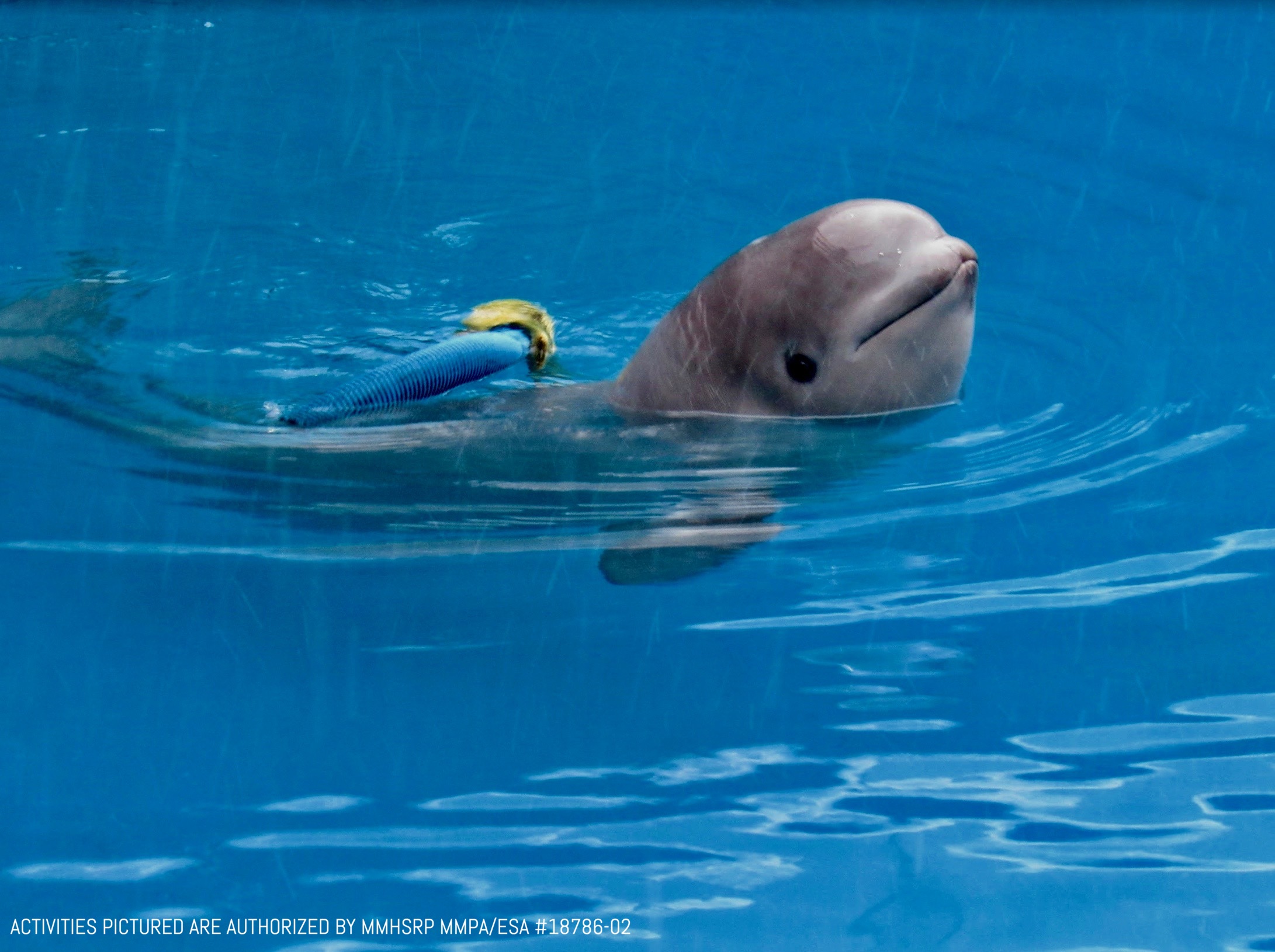NOAA Fisheries has selected SeaWorld San Antonio as the new home for Tyonek, the first-ever beluga whale from Cook Inlet, Alaska to be successfully rescued and rehabilitated after he was found stranded in September 2017. NOAA made the announcement late last week.
“We are proud to play our part in Tyonek’s continued care, alongside the federal government and others who have helped since his rescue,” SeaWorld Chief Zoological Officer Dr. Chris Dold said. “Experts from across North America came together to give Tyonek a second chance at life, and this is the culmination of those countless hours of care from passionate and dedicated people.”
According to NOAA Fisheries, SeaWorld was selected because it was the location best suited for Tyonek to thrive. The federal agency based its decision largely on SeaWorld’s ability to accommodate his social and medical needs, support all necessary transport and contribute to scientific research on the species to help conservation efforts in the wild.
Additionally, SeaWorld San Antonio currently supports a population of 9 beluga whales, including both adult females and young male beluga calves that will be important for Tyonek’s social development.
“The permanent placement of Tyonek at SeaWorld San Antonio—and the scientific knowledge gained by learning from him for years to come—will benefit Cook Inlet beluga research and recovery,” NOAA Fisheries wrote in a blog statement.
Tyonek was less than a month old when he was found stranded in Cook Inlet, Alaska. After undergoing months of 24/7 monitoring and care at the Alaska SeaLife Center, with help from experts from SeaWorld and other facilities across the continent, NOAA Fisheries determined Tyonek to be non-releasable in January 2018. According to NOAA Fisheries, at five months, Tyonek is currently nutritionally and socially dependent, and lacks both survival and socialization skills needed to be successful on his own in the wild.
The calf is a member of the endangered Cook Inlet beluga whale population, which according to NOAA Fisheries numbers approximately 328 animals. Experts from the Alaska SeaLife Center believe the whale had been stranded for several hours and was in a weakened condition, without evidence of major physical trauma. It is likely his mother either abandoned him or died, so reuniting him with her was not an option. Since October, experts from SeaWorld, Georgia Aquarium, Shedd Aquarium, Mystic Aquarium and Vancouver Aquarium have supported the Alaska SeaLife Center with Tyonek’s around-the-clock care.


